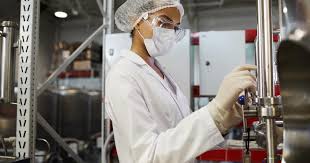Somali Magazine October 16, 2023- The Bill and Melinda Gates Foundation plans to invest $40 million to support multiple African companies to accelerate the development of a new messenger RNA vaccine.
This investment by the billionaire aims to address the challenge faced by millions of African people who were among the last to receive COVID-19 vaccinations.
The Gates Foundation asserts this initiative will leverage over 20 years of collaborating with vaccine makers in poor countries. Further, it will harness recent scientific breakthroughs to develop cost-effective, high-quality health tools with a global reach.
“Whether it’s for local diseases in Africa like Rift Valley fever or for global diseases like TB, mRNA looks like a very promising approach,” Bill Gates told The Associated Press after touring one of the companies getting the financing, the Institut Pasteur in Dakar, Senegal. “And so it allows us to bring in lots of African capabilities to work on these vaccines, and then this can be scaled up.”
“Expanding the availability of affordable, high-quality vaccines that meet the needs of local communities is one of the best ways to improve global health outcomes and reduce preventable deaths,” said Trevor Mundel, president of the Gates Foundation’s Global Health Division. “By lowering barriers to access for low- and middle-income countries, we can help ensure more people around the world benefit from lifesaving health innovation.”
The mRNA technology is hailed as a transformative force in global health. It can potentially combat diseases such as tuberculosis, malaria, and Lassa fever. These diseases disproportionately affect millions of people in low-income countries.
Globally, the prominence of mRNA vaccine technology became evident through the manufacturing of Pfizer and Moderna COVID-19 vaccines. According to experts, mRNA technology reduces research and manufacturing costs while expanding access. These qualities effectively bridge vital gaps in meeting healthcare needs.
Dr. Muhammad Ali Pate, Nigeria’s Minister of Health and Social Welfare and a global vaccine expert, noted that enabling researchers and manufacturers in Africa to use mRNA vaccine technology will expand the reach of next-generation vaccines.
“This collaboration is an encouraging step that will increase access to critical health technologies and help African countries develop vaccines that meet the needs of their people,” Dr. Pate added.
In the Gates Foundation’s funding plan, Senegal’s IPD and South Africa’s Biovac will each receive $5 million. This funding will enable these institutes, with expertise in vaccine manufacturing, to acquire mRNA technology.
Additionally, this funding will empower these companies to develop vaccines tailored to local needs. Furthermore, the foundation will allocate $20 million to Quantoom Biosciences to advance the technology and cut commercialization costs. This commitment will ensure that Low and Middle-Income Countries (LMICs) can easily access next-generation mRNA health tools.
Quantoom’s mRNA technology solves common problems inherent in current research and manufacturing. For instance, using Quantoom’s platform promises to cut vaccine production costs by over half compared to traditional mRNA methods.
Moreover, it reduces a country’s reliance on highly trained experts, one of Africa’s most significant hurdles in vaccine production. All this while maintaining or even improving the quality of products. Quantoom’s platform was initially developed with an early-stage Grand Challenges grant from its parent company, Univercells.
Moreover, the Gates Foundation will grant another $10 million to other LMIC vaccine manufacturers, set to be unveiled later.
mRNA technology can potentially enhance self-sufficiency in countries such as Senegal and South Africa. This will enable these countries to produce cost-effective, high-quality vaccines for malaria and tuberculosis. The funding initiative will also see South Africa and Senegal get tools to address country-specific healthcare needs.
“Innovation can be transformative, but only if it reaches the people who need it most,” said Morena Makhoana, CEO of Biovac. “This collaboration will help close critical gaps in access to promising mRNA vaccines against diseases that disproportionately affect the world’s poorest. It will also assist us in our mission to establish end-to-end vaccine manufacturing capability at scale in Africa for global supply.”

